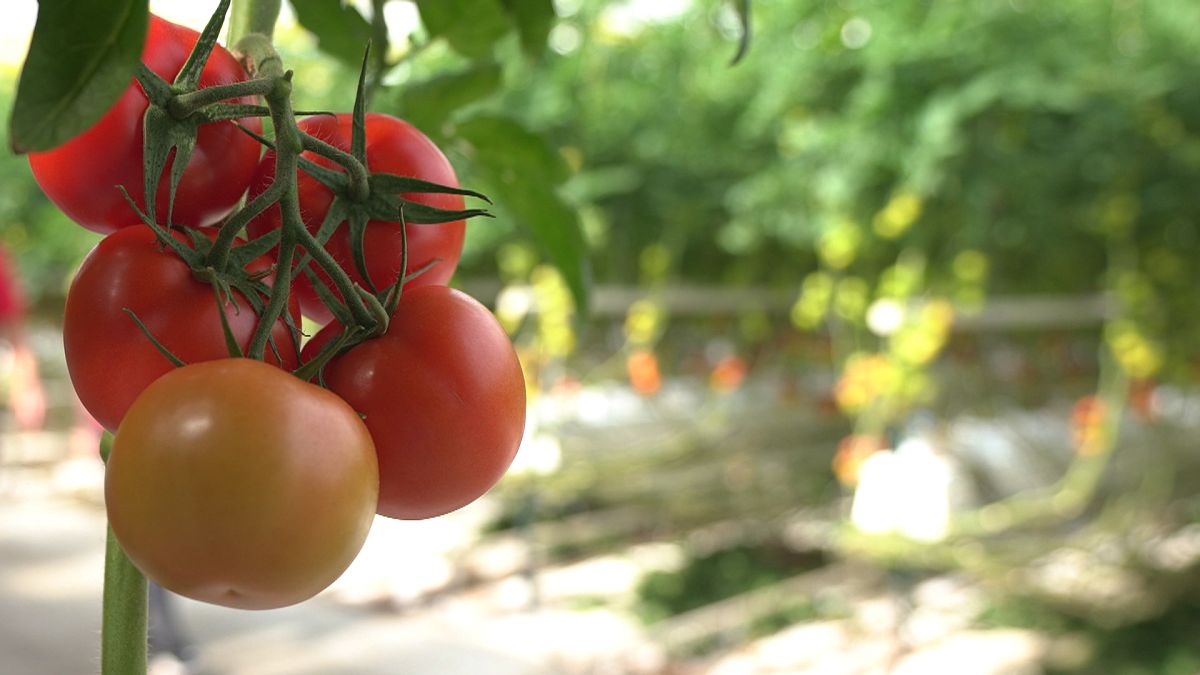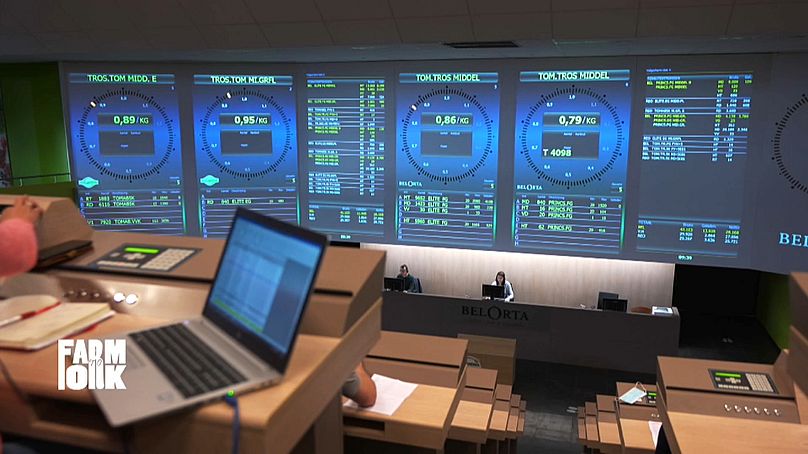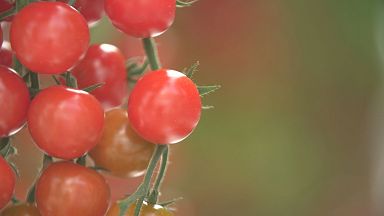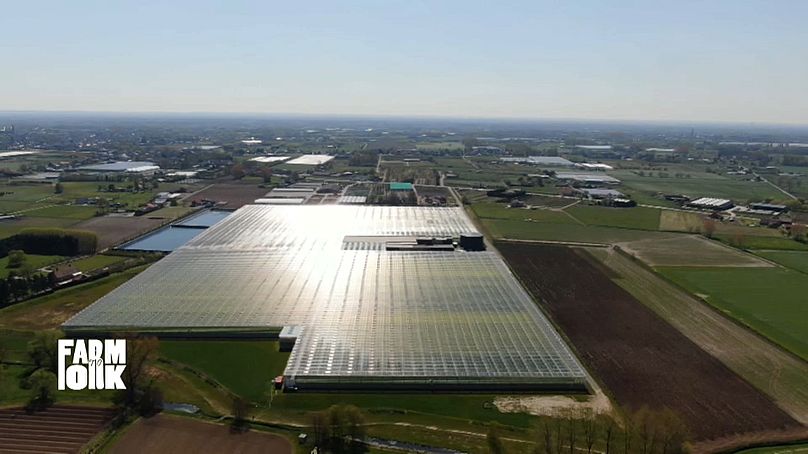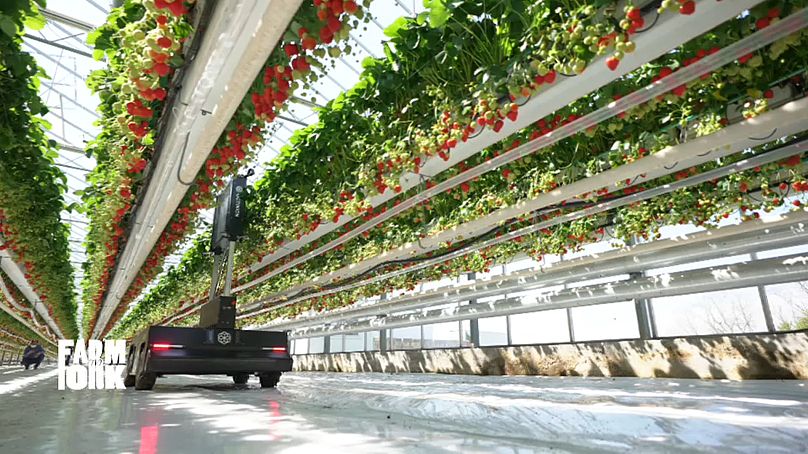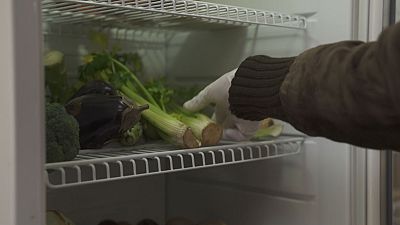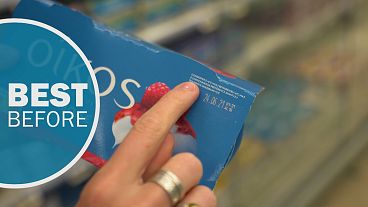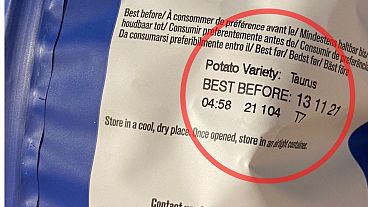Sustainable farming methods are being used more and more in Europe. They help the environment, reduce costs and help farmers earn a fair wage. The EU's Common Agricultural Policy is also trying to encourage these practices.
The fruit and vegetable auction in Sint-Katelijne-Waver, Belgium, may look like a space mission control centre, but it's actually one of the most major auctions of its kind in Europe.
Every day up to 4000 tons of fresh produce are sold there. Fruit and vegetables grown by over a thousand farmers travel to its warehouses to then end up on our plates.
The farmers that sell in Sint-Katelijne-Waver are all part of the BelOrta network, one of Europe's largest fruit and vegetable selling cooperatives.
The organisation has strict production procedures to ensure good quality standards and prices. For growers, sustainable production also means a fair income.
Jo Lambrecht is a Sales and Marketing Manager for Belorta. He tells us that one of their goals is to get "the best possible price in the markets for the protection of growers". They also want to build consumer, buyer and grower trust to create "a long term relationship between what happens on the field, what happens on the producer side and what happens at the consumer's home".
Fair market conditions, sustainable farming and quality standards are also some of the pillars of the EU's new Common Agricultural Policy, known as the CAP.
Its future goals are to combine social, economic and environmental approaches to create a sustainable model of European agriculture.
Two farms, that are part of the Belorta Network, have been able to change their production to make it more sustainable thanks to financial support from the CAP.
One of them is in the Belgian town of Putte. The thousands of tomatoes produced in the huge greenhouses there get exactly what they need.
The cogeneration system on the farm produces complementary energy which is released into the local grid. Thermal insulation screens help save heat at night, keeping the tomatoes at the right temperature for a lower cost. Natural methods also protect them from disease and the irrigation system ensures the most efficient use of water for their growth. Nothing goes to waste.
Kevin Pittoors the owner of the farm tells us "the excess water is collected and after it is purified, it is reused on the plants. So it's a closed cycle." They also use the maximum amount of rainwater in order to meet water requirements as efficiently as possible.
A LED lighting system, installed in the greenhouse, helps compensate for the lack of light during the winter months. Pittoors says the advantage of these lights is that "they consume less power", helping to "save energy" and providing "optimal light for the plants."
Farms of all sizes are playing an important role in the transition towards a more eco-friendly agriculture.
Sustainable solutions like those used in Putte's tomato production are also used on a family-owned strawberry farm in Halle.
The farm applies natural remedies to protect plants from disease as well as using new technology, like an autonomous robot that uses UV light to fight powdery mildew. It's a machine that helps reduce the use of pesticides.
The strawberry farm tries to use a natural strategy as much as it can when fighting plant diseases.
Robin Colembie, a worker there, tells us that chemicals are always the last option. He feels that it's important to make an effort and move towards sustainable processes because it shows in the final product. "There is also a growing demand from consumers for more environmentally friendly and pesticide-free fruits".
